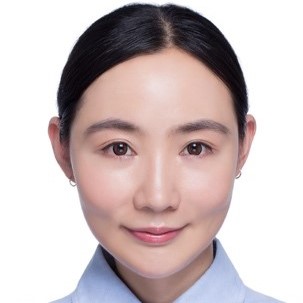September 2026
Full time
18 months
Suzhou
This programme leads to a University of Liverpool degree which is recognised by Ministry of Education, China.
Knowledge and skills
Graduates of our MSc Applied Mathematics programme are expected to play an important role in many professional fields including research, education, industry, and finance, and be able to apply mathematical methods and technical support to solve practical problems.
Upon completion of the MSc programme in Applied Mathematics, students will be equipped with the following knowledge and skills:
- In-depth understanding of mathematical theory: the ability to deeply understand and apply advanced mathematical theories such as partial differential equations, numerical analysis, and control theories;
- Mathematical modelling skills: the ability to convert practical problems into mathematical models and use mathematical methods to analyse and solve them;
- Computational methods and techniques: the ability to use various computational tools and software (e.g., MATLAB, R, Python, etc.) for mathematical modelling, numerical computation, and data analysis;
- Data analysis and processing: the ability to use statistical and machine learning methods to analyse and process data, including data collection, cleaning, analysis, and interpretation;
- Interdisciplinary knowledge: the ability to understand and apply mathematical tools to solve real-world problems in fields such as engineering, physics, biology, and finance;
- Research methods and skills: the ability to conduct independent scientific research, including literature review, problem formation, research design, experimental methods, data analysis, and paper writing;
- Critical thinking and problem-solving skills: the ability to critically analyse problems, propose innovative solutions, and solve complex problems; and
- Communication and collaboration skills: the ability to effectively communicate mathematical ideas and research results to others and to collaborate in interdisciplinary teams.
As the Director of the MSc Applied Mathematics programme, I warmly invite you to join us if you have a passion for solving the world’s complex problems. In this era where data and technology drive progress, expertise in applied mathematics is not just valuable—it’s essential. Our master’s programme offers the tools, knowledge, and opportunities to make a significant impact across industries and research fields. At XJTLU, you will not only master mathematical theories and computational techniques but also learn how to apply them to real-world challenges, bridging the gap between theoretical knowledge and practical application. Let’s embark on this journey together, harnessing the power of applied mathematics to innovate, solve, and lead in an increasingly data-driven world.

Dr Xinyao Yang
Programme Director
Modules
*Programme modules listed are illustrative only and subject to change. XJTLU students are advised to log in to the e-Bridge Portal to view the effectuated module structure.
Semester 1
Semester 2
Careers
Applied mathematics is a discipline that studies the practical application of mathematical methods and techniques across various fields, including engineering, physics, biological sciences, medicine, social sciences, business, economics, and computer science. With the rapid development of science and technology and the growing demand for high-tech fields such as data analysis, artificial intelligence, and machine learning, the prospects for applied mathematics are very broad and optimistic. These include:
- Data analysis and statistics. In the era of big data, data analysis has become an important tool for decision support. Applied mathematics plays a key role in data mining, statistical analysis, and predictive modelling;
- Finance and economics. In areas such as financial engineering, risk management, and investment strategy analysis, applied mathematics provides powerful tools to help financial institutions optimise decisions and control risks;
- Engineering and physical sciences. Applied mathematics is central to solving problems in engineering design, fluid mechanics, material science, and electromagnetics;
- Biological sciences and medicine. Fields such as biostatistics, bioinformatics, and epidemiological modelling require the methods of applied mathematics for analysis and problem-solving;
- Computer science. Applied mathematics provides the theoretical foundation and solutions in various areas, including algorithm design, artificial intelligence, machine learning, image processing, and network security; and
- Environmental science. In climate modelling, environmental assessment, and resource management, applied mathematics helps in simulation and prediction to support decision-making for sustainable development.
Due to the interdisciplinary nature of applied mathematics, it offers a wide range of career opportunities in various fields, including academia, research institutions, government departments, financial institutions, consulting firms, and technology companies. As society’s demand for advanced mathematical skills continues to grow, professionals specialising in applied mathematics will enjoy excellent career prospects.








Overview
The MSc Applied Mathematics programme focuses on providing students with a solid foundation in mathematics and the ability to use their skills in practical applications. Our students are equipped with the tools to tackle challenges in scientific and technological fields related to applied mathematics.
The programme requires 60 credit hours of coursework, including 20 credits of dissertation research.
The candidates complete a core curriculum in the two areas: (1) analysis of partial differential equations, and (2) numerical optimisation and scientific computing.
The School of Mathematics and Physics (SMP) has nearly 100 full-time academic staff members, with active research areas extending beyond the scope of the modules covered. Their expertise also encompasses applications of research in industry and finance.
Through studying this programme, students will receive an excellent education, developing their proficiency in core concepts, techniques, and applications related to applied mathematics. This gives our students a springboard for success in their careers or further study in PhD programmes at world-renowned institutions.
A strength of this programme is the industry partnerships that the SMP has meticulously built over the years. The School has strategic partnerships with successfully established research institutions, such as the Jiangsu Industrial Technology Research Institute (JITRI) and the Xi’an Jiaotong-Liverpool University HeXie Management Research Centre (HeXie Centre), as well as networks including insurance and financial companies. Through these collaborations, our academic staff create up-to-date curricular materials aligned with industry needs and academic requirements, providing our students with opportunities to apply their skills in real-world scenarios.